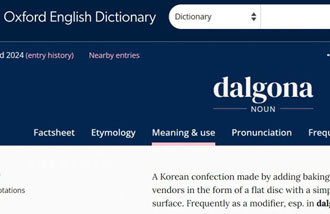Let's address ‘burden politics’
Let's address ‘burden politics’
Posted January. 08, 2025 08:15,
Updated January. 08, 2025 08:15
One of the four key pillars of Korea's economic policy in 2025 is managing the nation's external credit. Releasing the 2025 economic policy direction last Thursday, the Korean government noted that domestically, the most urgent priority is improving livelihoods, while externally, managing credibility is paramount. This reflects growing concerns that the ongoing political turmoil following the state of emergency could even shake the country’s credit rating, prompting the government to focus all efforts on maintaining external credibility. Measures include appointing former economic officials who have driven South Korea’s economy as diplomatic envoys and organizing overseas briefings on the Korean economy.
This is the nation's second time welcoming the new year with its president suspended from duties. However, it is the first time that the issue of managing external credibility has emerged on top. At the end of 2016, when former President Park Geun-hye's impeachment trial started, managing the external credit was not mentioned at all in the next year's policy direction publication, except one sentence that said a presentational briefing on the Korean economy would be held in New York in January 2017 presided by the Minister of Economy and Finance. This demonstrates that the government is also aware that political chaos is more negative for the economy now than it was back then.
Why has the national credit rating management become so important compared to 2017? One of the main reasons is the aggravated global economic environment. The Bank of Korea assessed the current situation as facing hardships in terms of the external environment, including growing uncertainties in trade, as opposed to the landscapes of previous impeachments, such as the rapid rise of the Chinese economy (2004) and booming semiconductor industry (2016) both of which helped buttress Korea's economic growth through improved exports under favorable external environment. The Korean government forecasts that the year-on-year export growth will stand at a mere 1.5% in 2025, which is starkly contrasting from 2017 when the figure hit 15.8%.
On top of that, the sharply rising national debt is another pressure on the national credit. The national debt has soared to 1,127 trillion Korean won as of the end of 2023, a 500 trillion won increase from 627 trillion at the end of 2016. The government expects the debt to grow to 1,277 trillion in 2025. If that were to come true, the debt would account for as high as 50% of the nation's GDP. Korea's national debt in 2016, when the global credit rating agency S&P raised Korea's national credit by one notch, accounted for 34% of the GDP.
This year’s government bond issuance is expected to hit an all-time high, with issuance exceeding redemption by 80 trillion won, resulting in an additional 80 trillion won increase in national debt. If tax revenue shortfalls persist and a supplementary budget becomes necessary, more debt will be needed to bridge the gap. Domestic credit rating agency NICE Credit Rating recently warned, “The deterioration of debt repayment capability indicators due to the rapid increase in government bond issuance could heighten downward pressure on national credit ratings, potentially impacting ratings after 2025.
Low economic growth, which has become the new norm for Korea, also undermines external credibility. The government projects this year’s economic growth rate at 1.8%, based on the assumption that the current political uncertainties will be resolved quickly. Even compared to the 2016 impeachment era, the current economic landscape presents numerous factors that could harm external credibility. If external credibility falters, the ultimate burden falls on citizens. No matter how hard the government works, resolving political uncertainty is the first step in managing external credibility. Stopping “burden politics” is essential to safeguard Korea’s economic standing—a reality seemingly lost on its politicians.
Headline News
- Pyongyang test-fires new hypersonic IRBM with longest flight range
- NVIDIA CEO: ‘ChatGPT moment for general robotics just around the corner’
- President security service chief refuses second summons
- NVIDIA CEO: ‘ChatGPT moment for general robotics just around the corner’
- N. Korea fires intermediate-range ballistic missile







